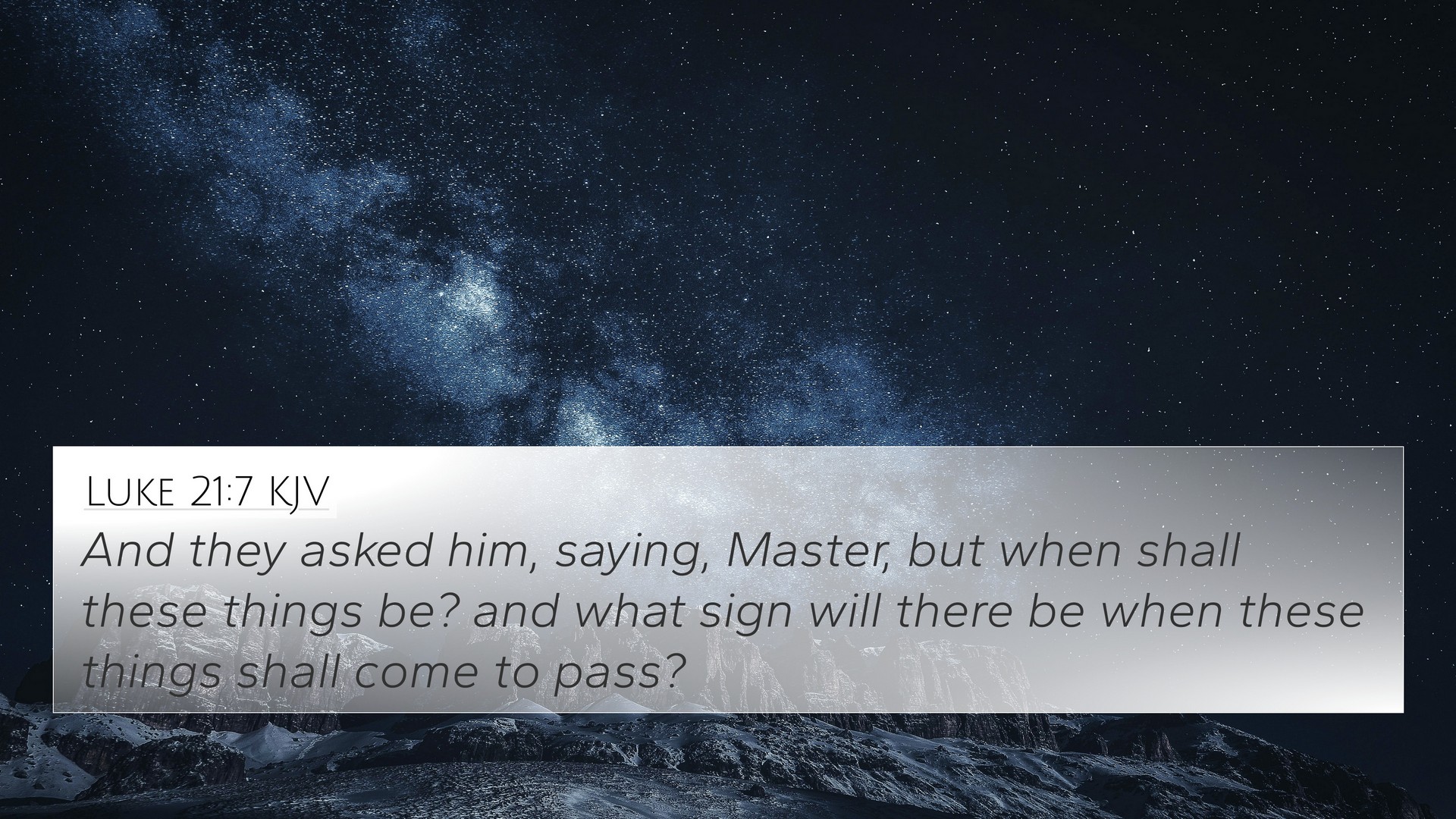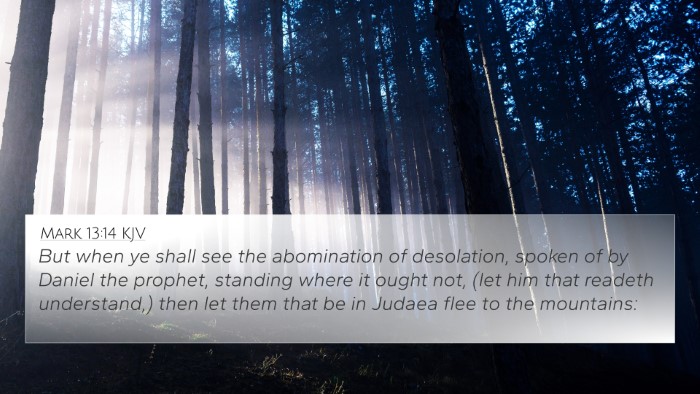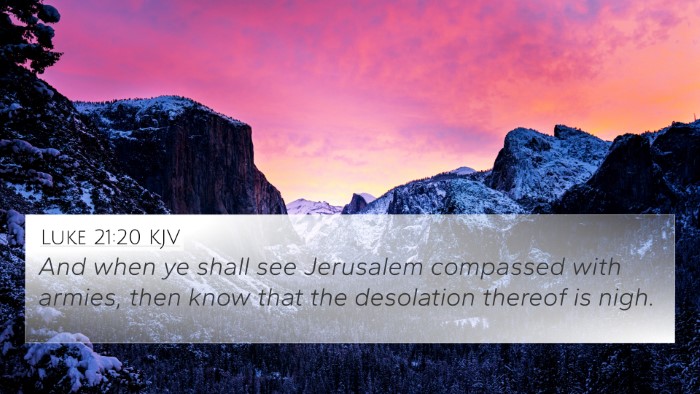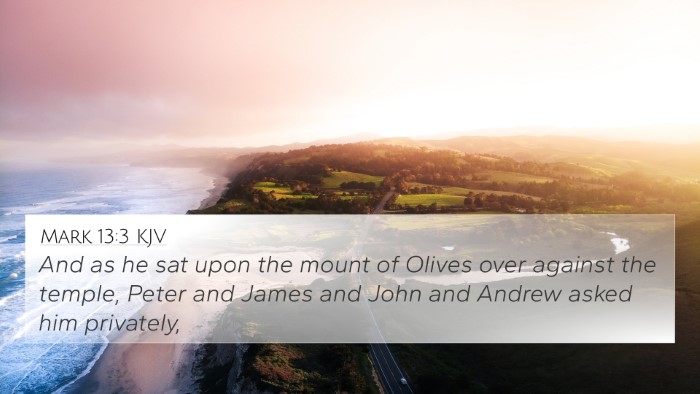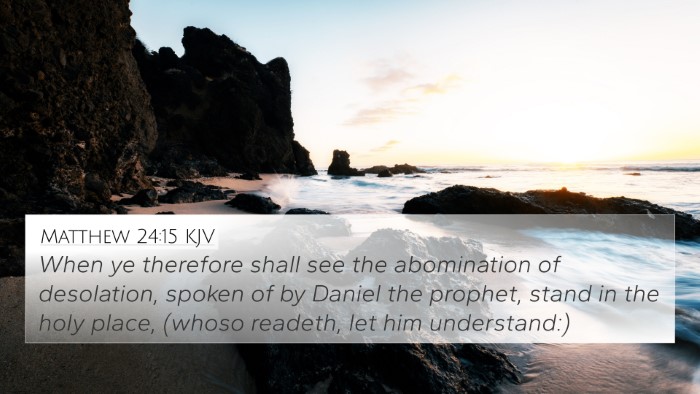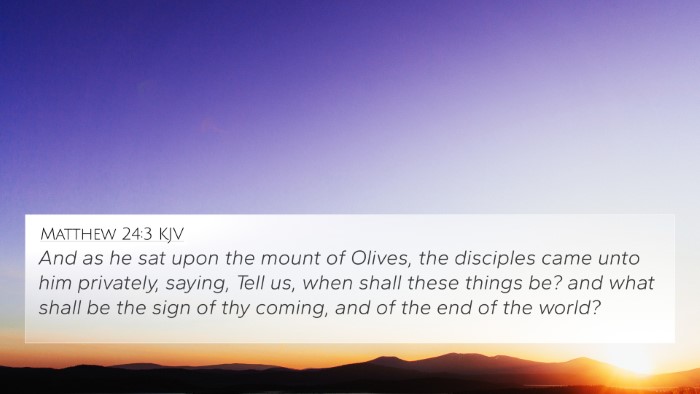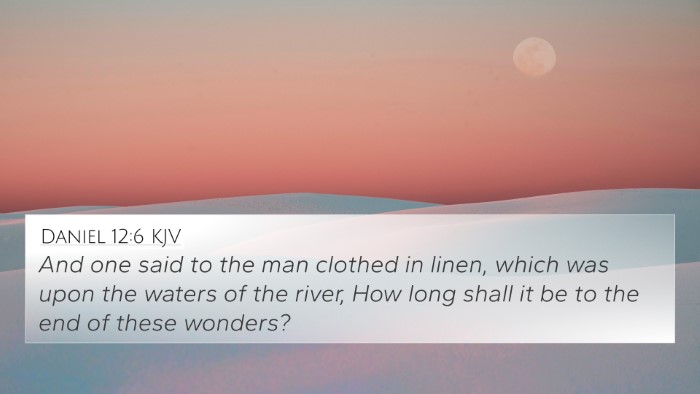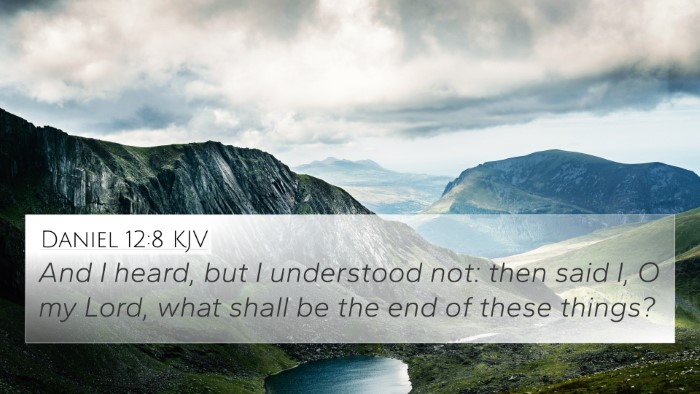Meaning and Interpretation of Luke 21:7
In Luke 21:7, the disciples question Jesus about the signs of the times and the end of the world, asking, "Teacher, when will these things be? And what will be the sign when these things are about to take place?" This interaction reflects their desire to understand prophetic insights regarding the impending destruction of the temple and the culmination of history.
Contextual Background
The context of Luke 21 highlights Jesus’ teachings about eschatology, or the study of end-times. This verse is situated just before Jesus’ detailed discourse on the signs of His second coming and the destruction that would precede it.
Commentary Insights
Matthew Henry's Commentary
Henry emphasizes the importance of preparedness for the events that will precede the end times. He notes that the disciples’ question illustrates a common yearning for knowledge regarding God’s plan. The inquiry into "when" and "what signs" signifies an active engagement with prophecy.
Albert Barnes' Notes
Barnes elucidates that the disciples were troubled by Jesus’ previous prophecies regarding the destruction of the temple. Their questions represent a quest for reassurance about their faith and the future. He also draws attention to the human tendency to seek clear signs for divine purposes:
- Seeking Signs: Barnes explains the disciples' desire for tangible indicators of God’s plans.
- Divine Timing: He notes that the timing of prophetic fulfillment is ultimately in the hands of God.
Adam Clarke's Commentary
Clarke approaches the verse with a focus on the distinction between the destruction of the temple and the end times. He points out that their question arises from a misunderstanding of the nature of the events Jesus is discussing. He explains that while they seek clarity, the reality is wrapped in divine mystery:
- Misunderstanding Teachings: Clarke emphasizes that the disciples’ confusion over the timing of prophecy is common among believers.
- The Nature of Signs: He argues that genuine signs may often be misunderstood or seen through a limited perspective.
Connections Between Bible Verses
Luke 21:7 connects with several other passages throughout Scripture, enriching the understanding of its implications:
- Matthew 24:3: Parallel account of the disciples asking Jesus about the signs of His coming.
- Mark 13:4: Focuses on the temple's destruction, echoing similar themes of inquiry.
- Acts 1:7: Jesus asserts that it’s not for the disciples to know the times or seasons that the Father has fixed.
- 1 Thessalonians 5:1-2: Discusses the times and seasons concerning the Day of the Lord, emphasizing the unexpected nature of Christ’s return.
- Revelation 1:3: Blessed are those who read aloud the words of prophecy, highlighting the importance of understanding prophetic scripture.
- Daniel 12:4: Explores the sealing of prophetic words until the time of the end, illustrating the mystery of divine revelations.
- Hebrews 10:25: Encourages assembly and exhortation as the Day approaches, resonating with the anticipation of Christ’s return.
Thematic Connections
This inquiry raises themes of:
- Faith and Assurance: Believers' need for assurance amidst uncertainty.
- Understanding Prophecy: The challenge of grasping divine prophecies.
- God’s Sovereignty: Recognition of God’s control over timing and events.
- Hope and Anticipation: The believer's hope in Christ’s return and the fulfillment of God’s promises.
Tools for Bible Cross-Referencing
When studying cross-references related to Luke 21:7, consider the following:
- Utilize a Bible Concordance to find related verses easily.
- Explore a Bible Cross-Reference Guide for deeper thematic connections.
- Engage in Cross-Reference Bible Study to uncover links between biblical texts.
- Use online resources for Bible reference resources to facilitate comparative studies.
Application in Study and Life
When reflecting upon Luke 21:7, one can incorporate its teachings into practical faith:
- Preparedness: Cultivating an awareness of spiritual readiness for Christ’s return.
- Seeking Understanding: Engaging in study and dialogue about prophecies.
- Encouragement: Offering support to others who are seeking clarity in their faith.
Conclusion
Luke 21:7 serves as a vital reminder of the importance of understanding biblical prophecy and the nature of questions that arise within the faith community. The connections drawn between this verse and others enrich our understanding of God’s timeline and encourage a deeper engagement with the Scriptures. As you explore further, consider how these cross-references build a more cohesive understanding of how the Bible speaks to itself and informs our faith journey.
